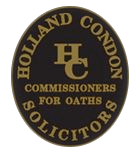- There are various guises/structures/forms that people use to carry on business e.g. → sole trader → partnership → company → co-op → joint venture → mutual society = types of organisations through which business is carried on
SOLE TRADER: simplest; 1 person organisation; 1 owner
Capital: financed by owner’s savings or loans in his name.
Liability: debts are his personal liability. Law makes no distinction between business and personal assets. Sole trader has unlimited liability for debts. If business goes bust, his personal assets are up for grabs = he may go bankrupt Contracts and assets in his own name.
Organisational structure: sole trader has complete ownership and control. Sole owner can have employees.
Accountability: self-accountable. Limited external regulation – tax returns + tax audits. Not covered by company law. Law in general and business law applies e.g. Employment; Health & Safety; Contract Law; Negligence etc.
- BUSINESS PARTNERSHIP: common form; 2 or more people in business
Definition = “persons carrying on a business with common view to make profit”. Up to 20 persons exception Solicitors & Accountants can have 50. By law the latter can only operate as sole trader or partnerships.
Capital: financed by owners’ savings or loans. Partners could contribute equally 50:50 or on other percentages.
Liability: each partner has unlimited liability for debts or business. Partners are liable to contribute their % share of the business towards the business debts. At least with partnerships the risks are shared
Organisational structure: ownership is shared between partners e.g. may be 50/50. Can have employees. Partners accountable to each other. Acts of one partner binds all.
Accountability: similar to sole traders; not regulated by company law. Must do tax returns. General law & business law applies.
COMPANIES: common form of business structure used to carry on business. Apply to Company Registrations Office (CRO) to incorporate a company. Get Certificate of Incorporation.
Capital: initially provided by the first shareholders who put in money in return for shares.
Liability: most common form of company is limited liability company = shareholders have limited liability for the debts of the company. If company goes bust, then, it owes the money to the creditors not its shareholders.
Shareholder is liable only to pay up for their shares e.g. A buys €1 share in X Ltd; X Ltd goes bust; A had paid his €1 then that’s all A loses; BUT if A had only paid 80 cent, then A would have to pay up 20 cent.
This company known as COPMANY LIMITED BY SHARES –versus– COMPANY LIMITED BY GUARANTEE = each shareholder guarantees to pay a certain figure on winding up –versus– UNLIMITED COMPANY e.g. guarantees companies = charities & voluntary groups.
So the owners of companies can have their liability kept limited by forming companies limited by shares. Least risky compared to Sole Transfers & Partnerships.
Advantages: attracts entrepreneurs to take risks; personal wealth not affected; separate entity; tax advantages.
Disadvantages: creditors bear all the financial risk.
Organisational structure: owners hold shares in the company, which is separate entity managed and run by a board of directors appointed at an A.G.M. by the shareholders (shareholders = owners = members).
The shareholders and directors could be the same people but this is not the case with big public companies.
Accountability: companies have considerable regulation.
*Company law 1963 – onwards – *CRO
*Stock exchange rules for public listed companies *General law & business law.
Company Limited by Shares – can be public or private
Public company (limited by shares) involves the public at large whereas Private company (limited by shares) does not.
Most common form = private
NB see the list of common characteristics and comparisons between public and private
NB Company is a separate legal entity to its owners
- Limited liability (ii) separate corporate status v sole traders & partnerships
-Law sees a company as a person in its own right i.e. has legal personality – “artificial person” → (can enter contracts: own assets) (sue or be sued: commit crime)
-Owners own shares in the company and company owns assets. They are separate.
So if company goes bust then owners (shareholders) don’t put up their own personal assets. If owner dies the companies doesn’t e.g. shareholder in Bank of Ireland dies, B.O.I. does not.
-We can be confused by this, as most companies are owned and run etc. by the one/same person. In addition, the owners may have given guarantees to banks over company loans so when we see company going bust, the assets of the owner may go but for different reasons.
-OWNER ↔ SHARES→ COPMANY ↔ assets/liabilities
-Corporate personality or veil of incorporation
NB Salomon v Salomon & Co Ltd
-•Where do proceeds of asset sale go → to bank a/c?
- Someone slips in Bank of Ireland – who do they sue?
COMPANY LEGISLATION CONSOLIDATED IN 2014
The Companies Bill was passed on Wednesday, 10 December 2014. The new Companies Act is planned to come into force on 1 June 2015.It’s called Companies Act, 2014.With about 1,500 sections, this is the largest piece of legislation ever enacted by the Oireachtas. Essentially, it consolidates all Company Acts from 1963 to 2013 into one Act.




